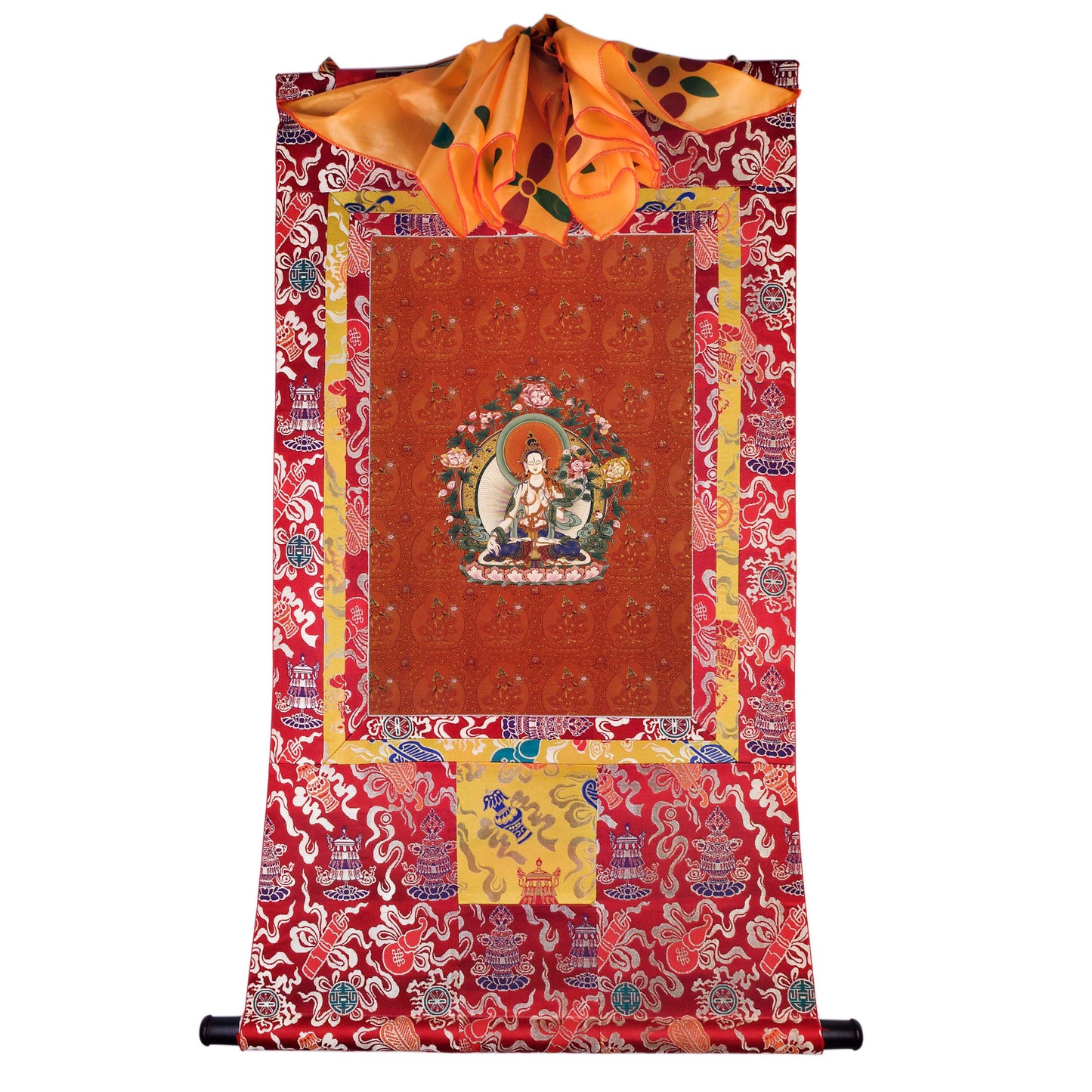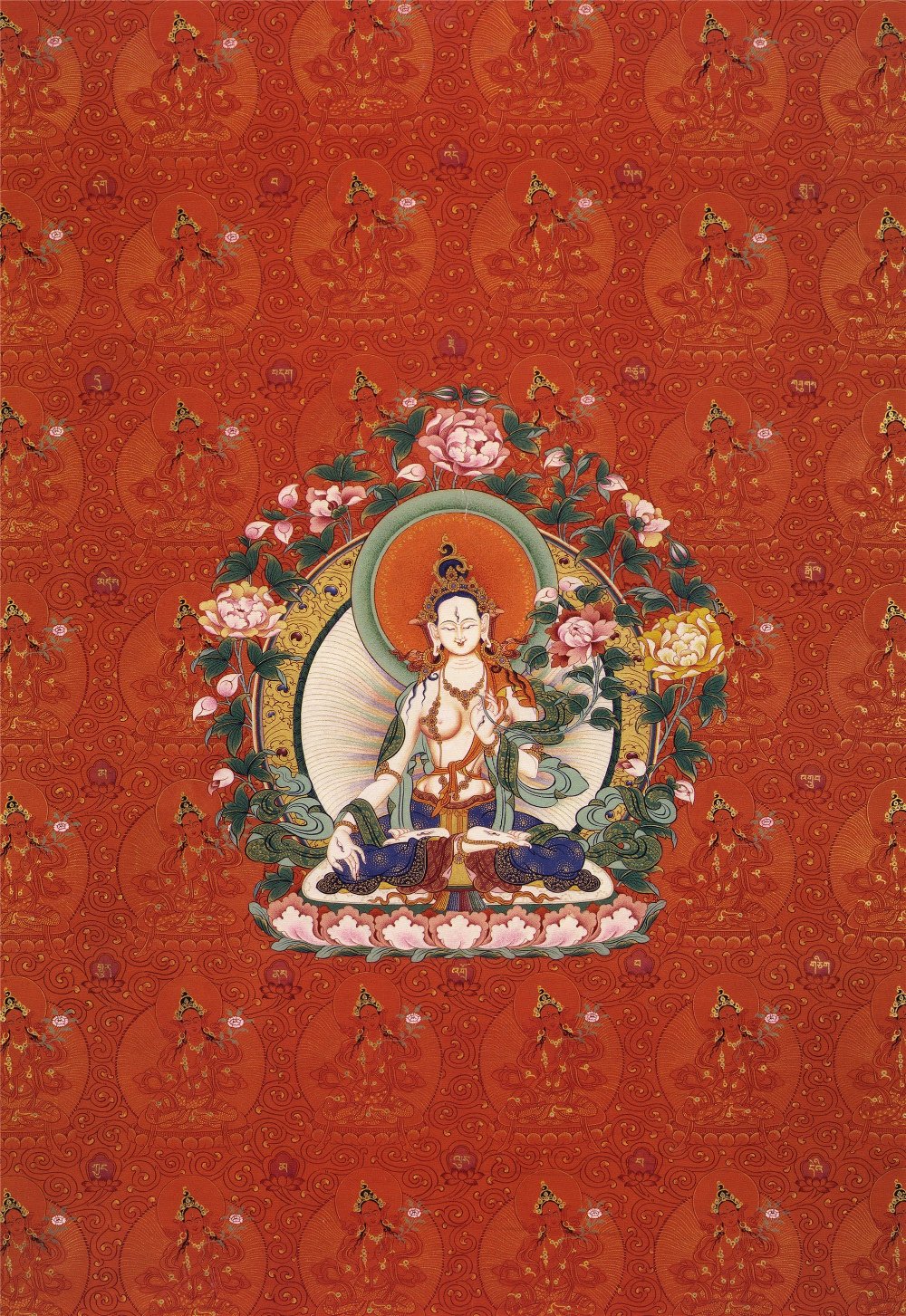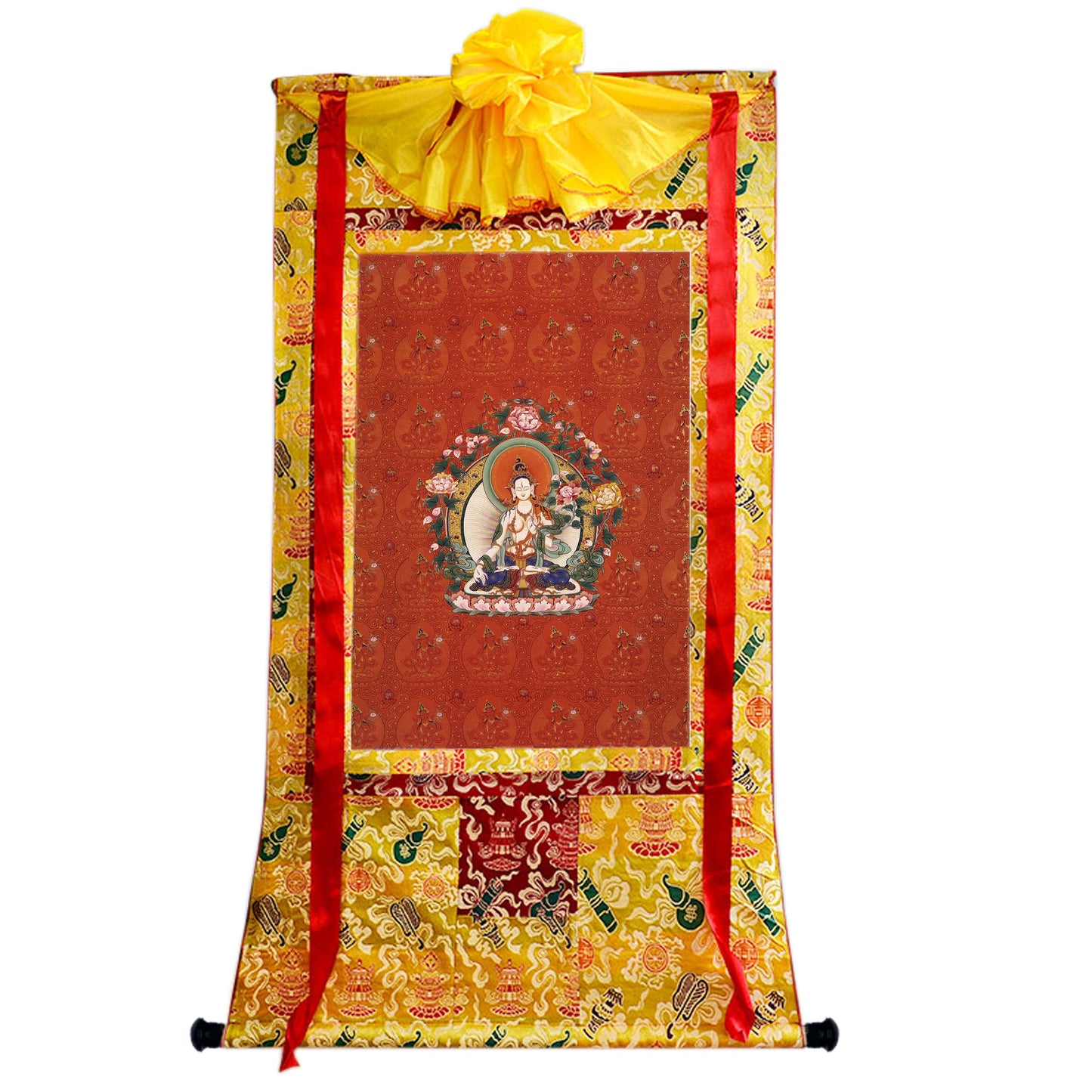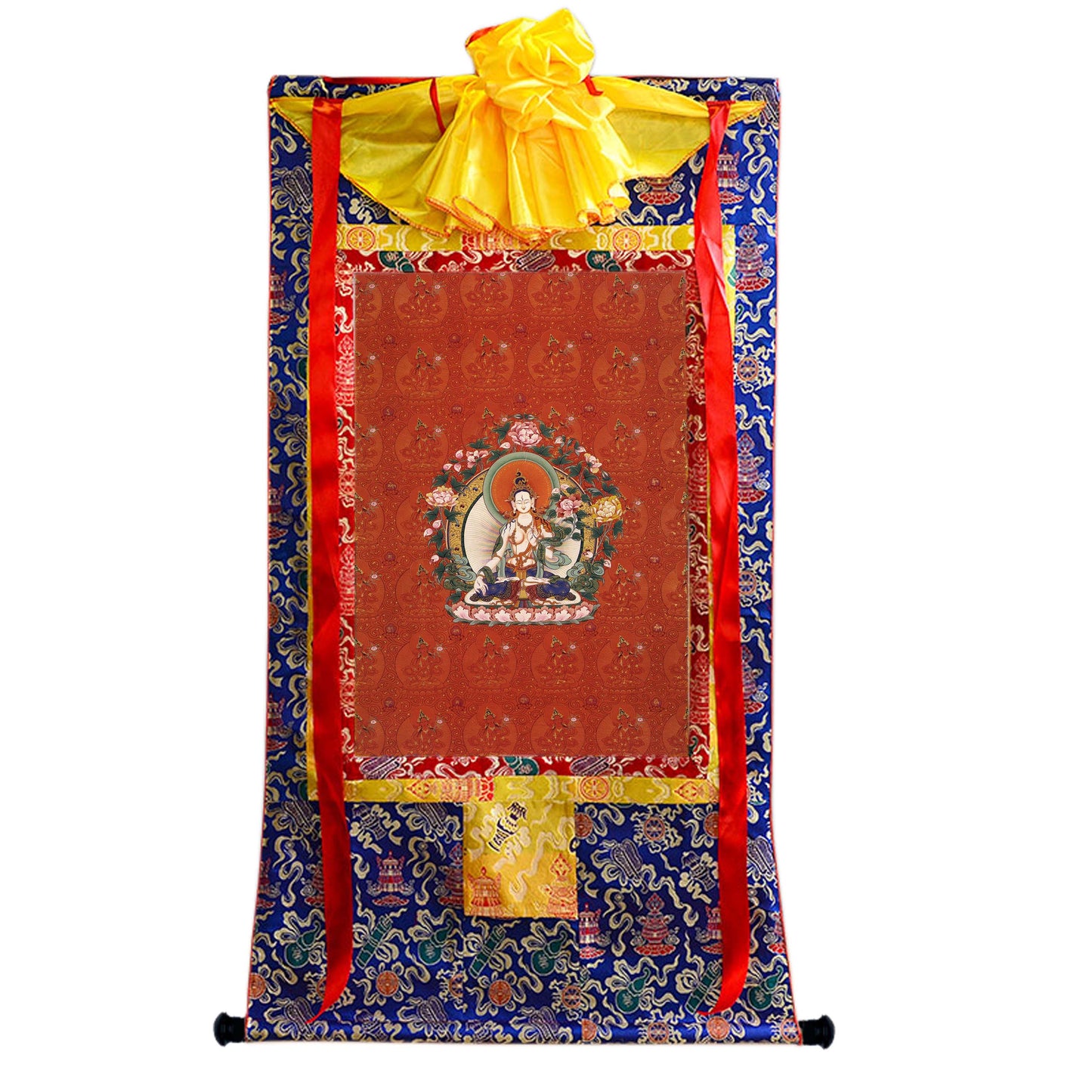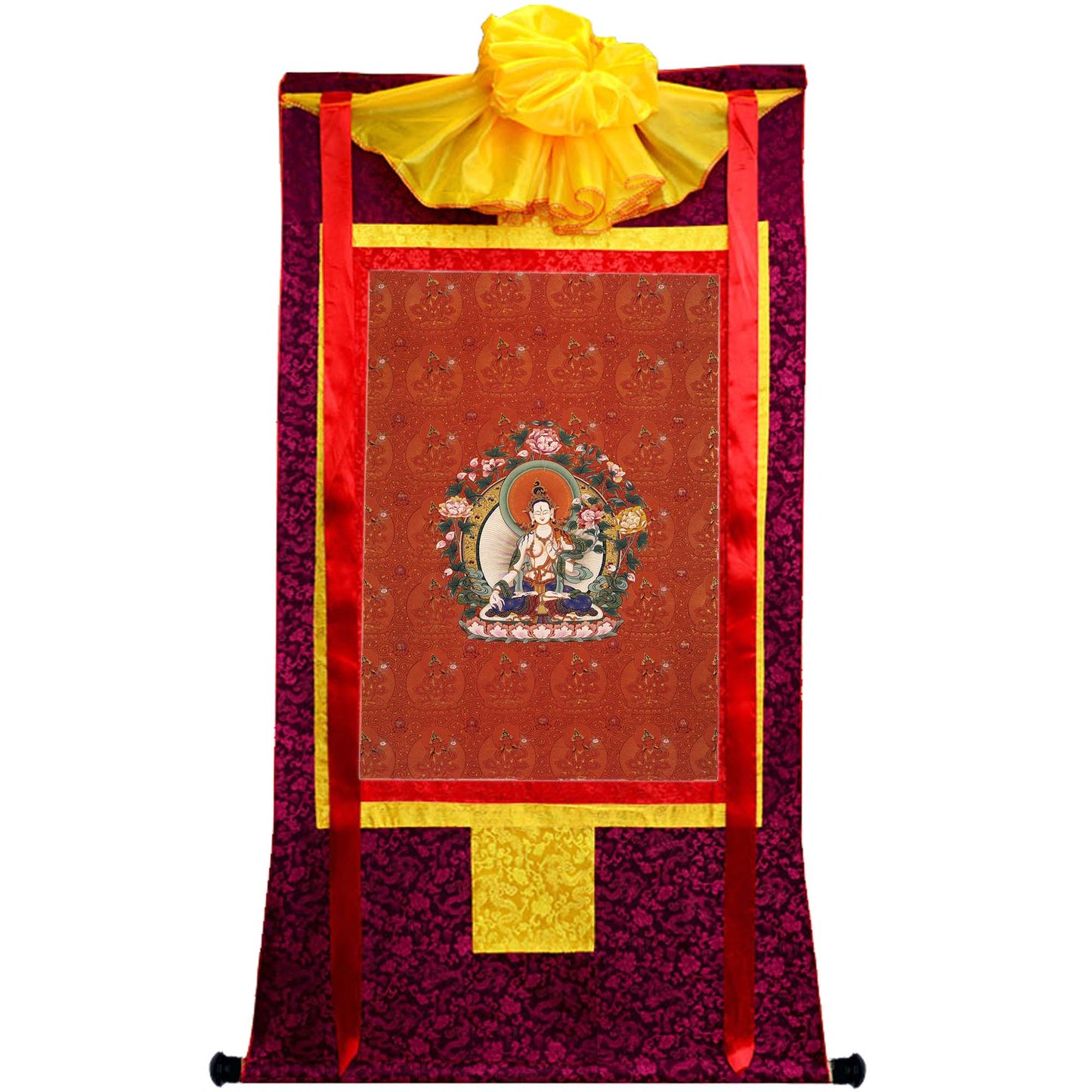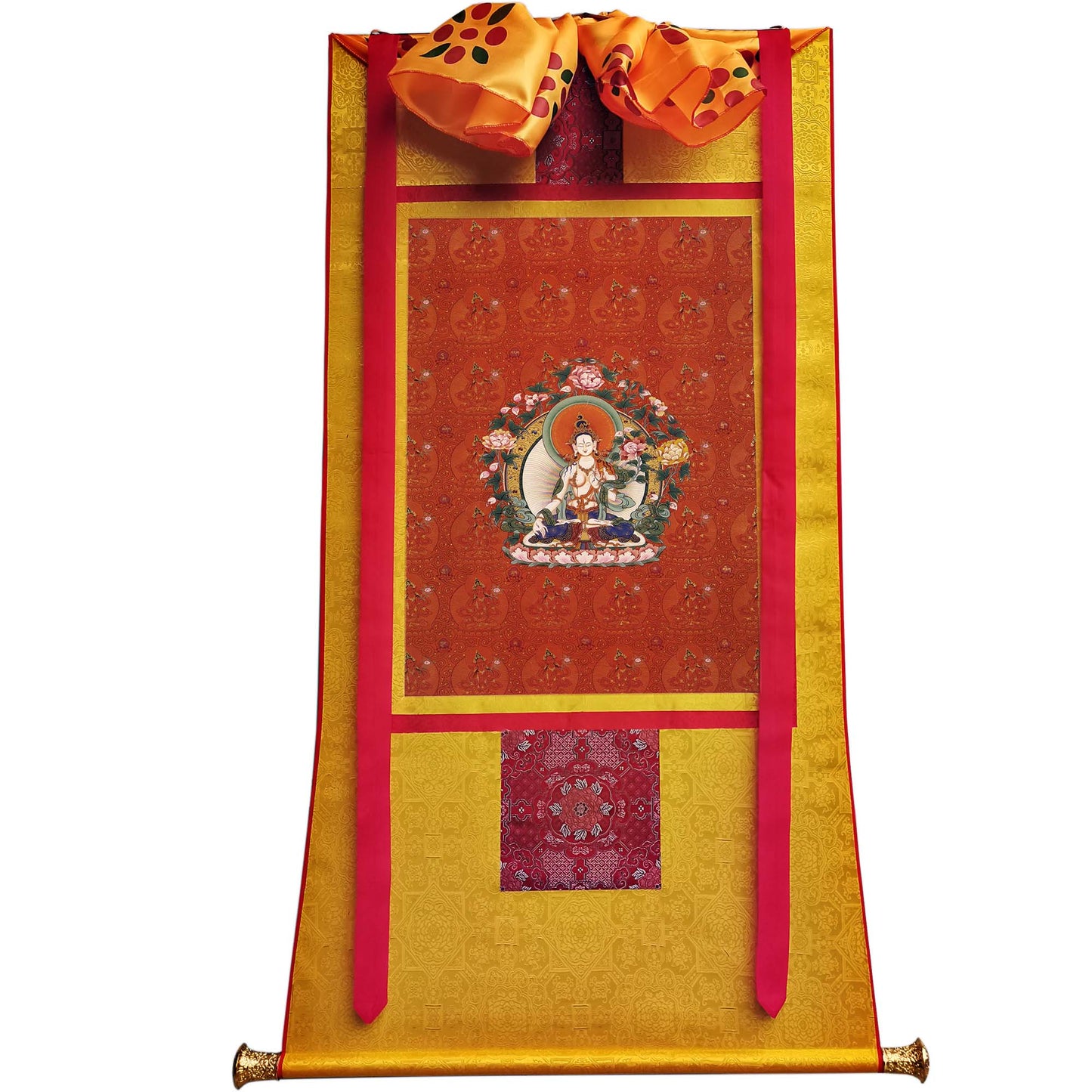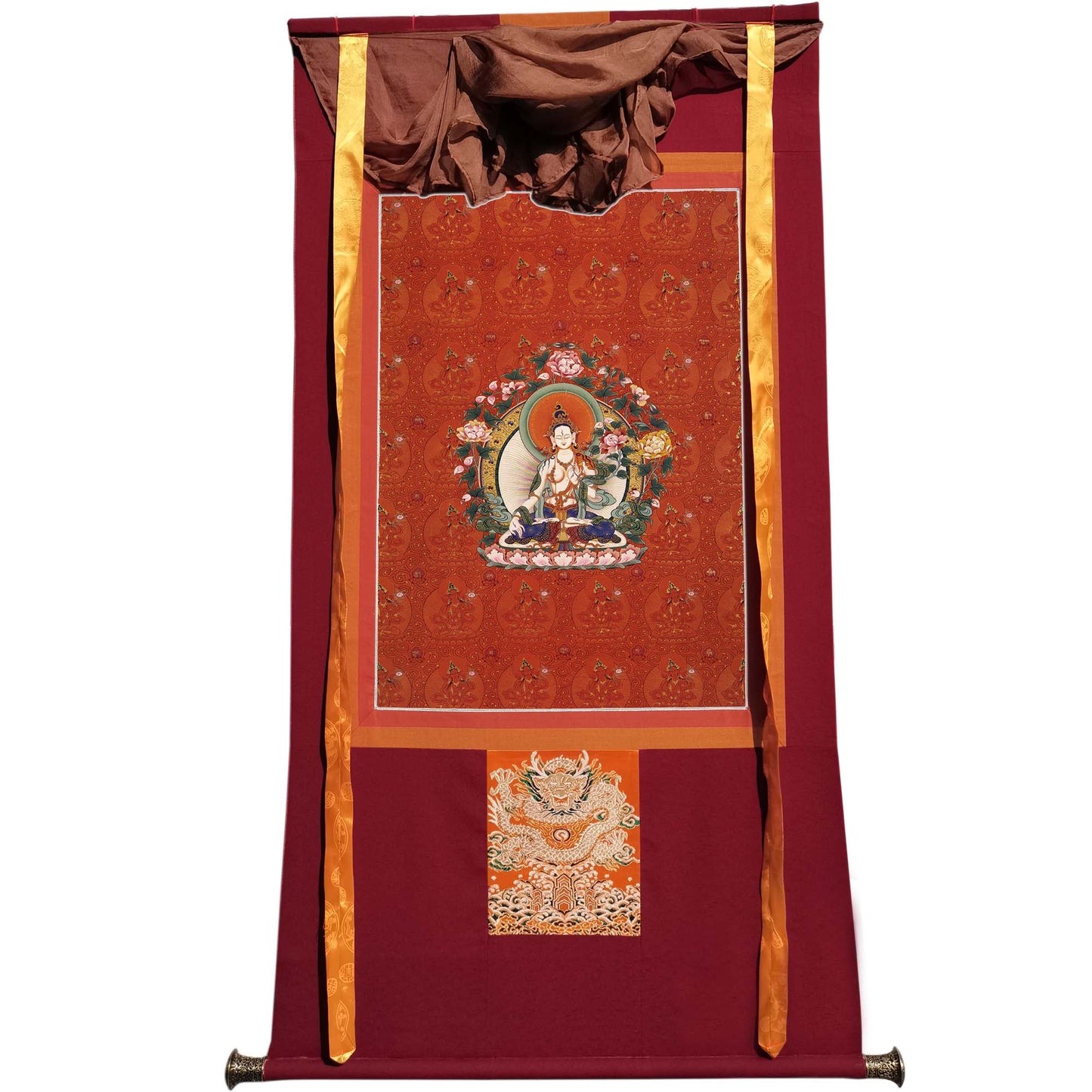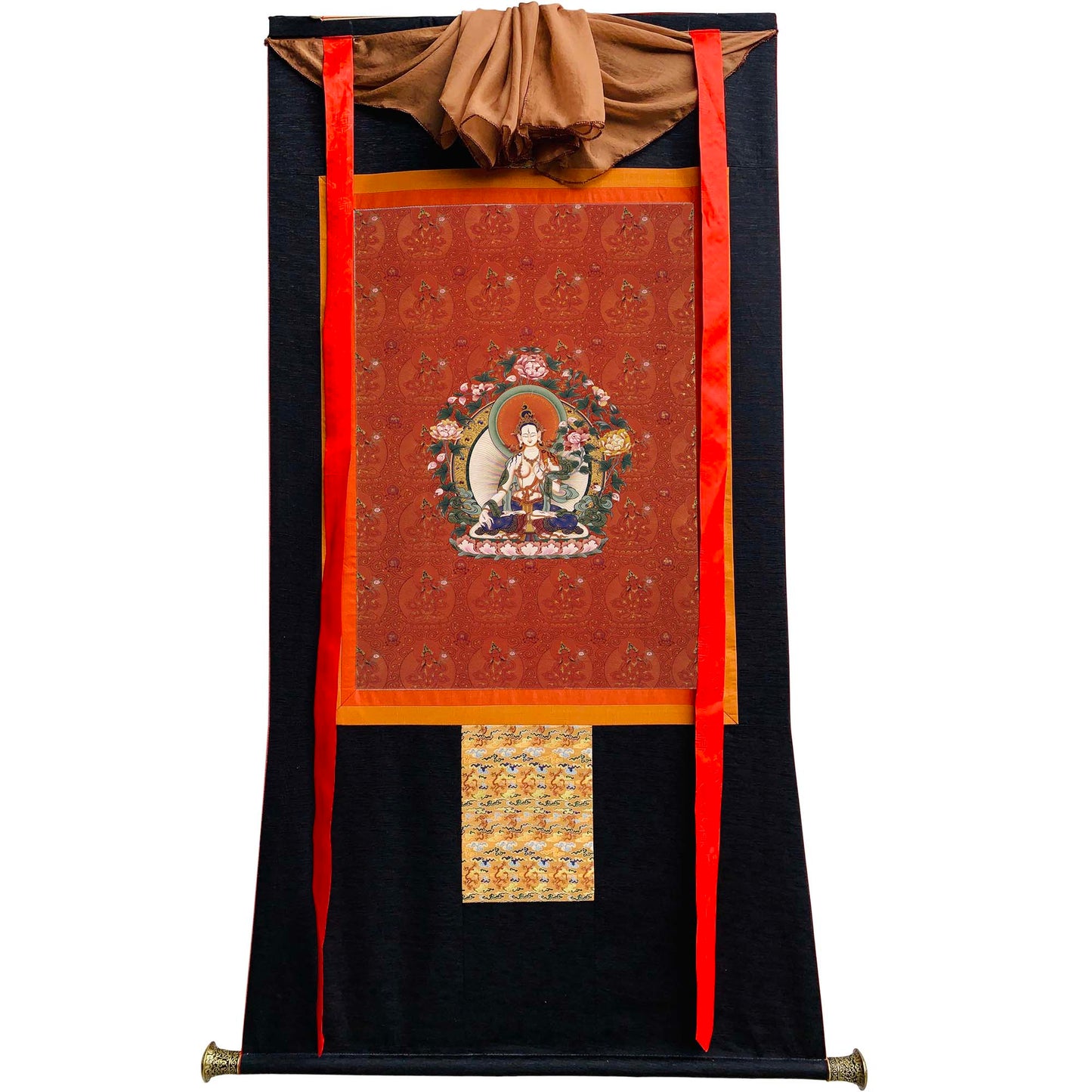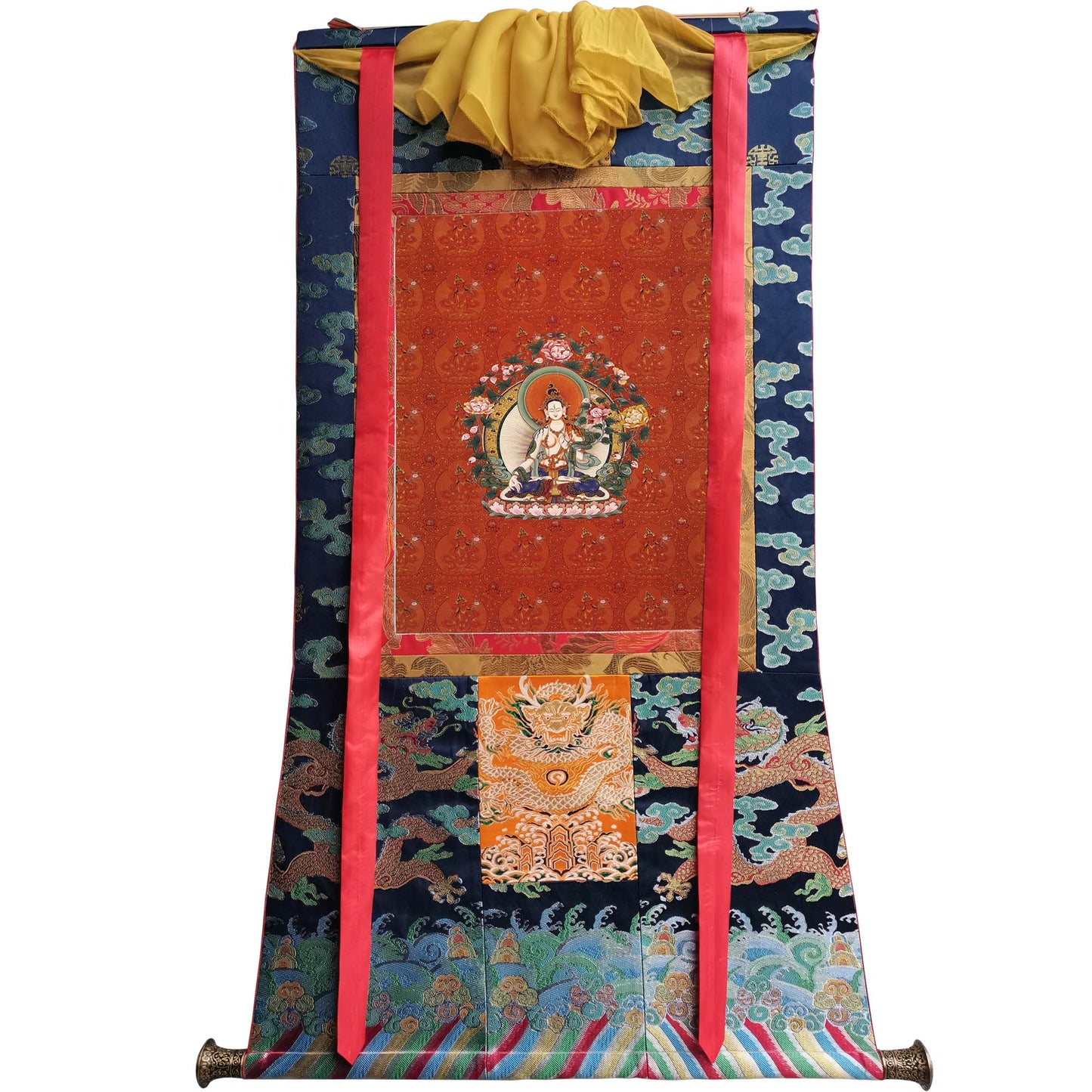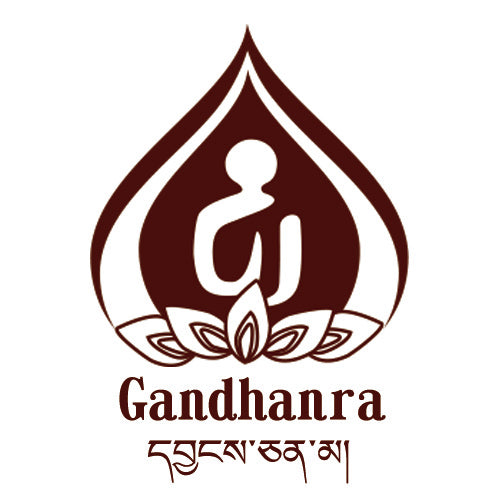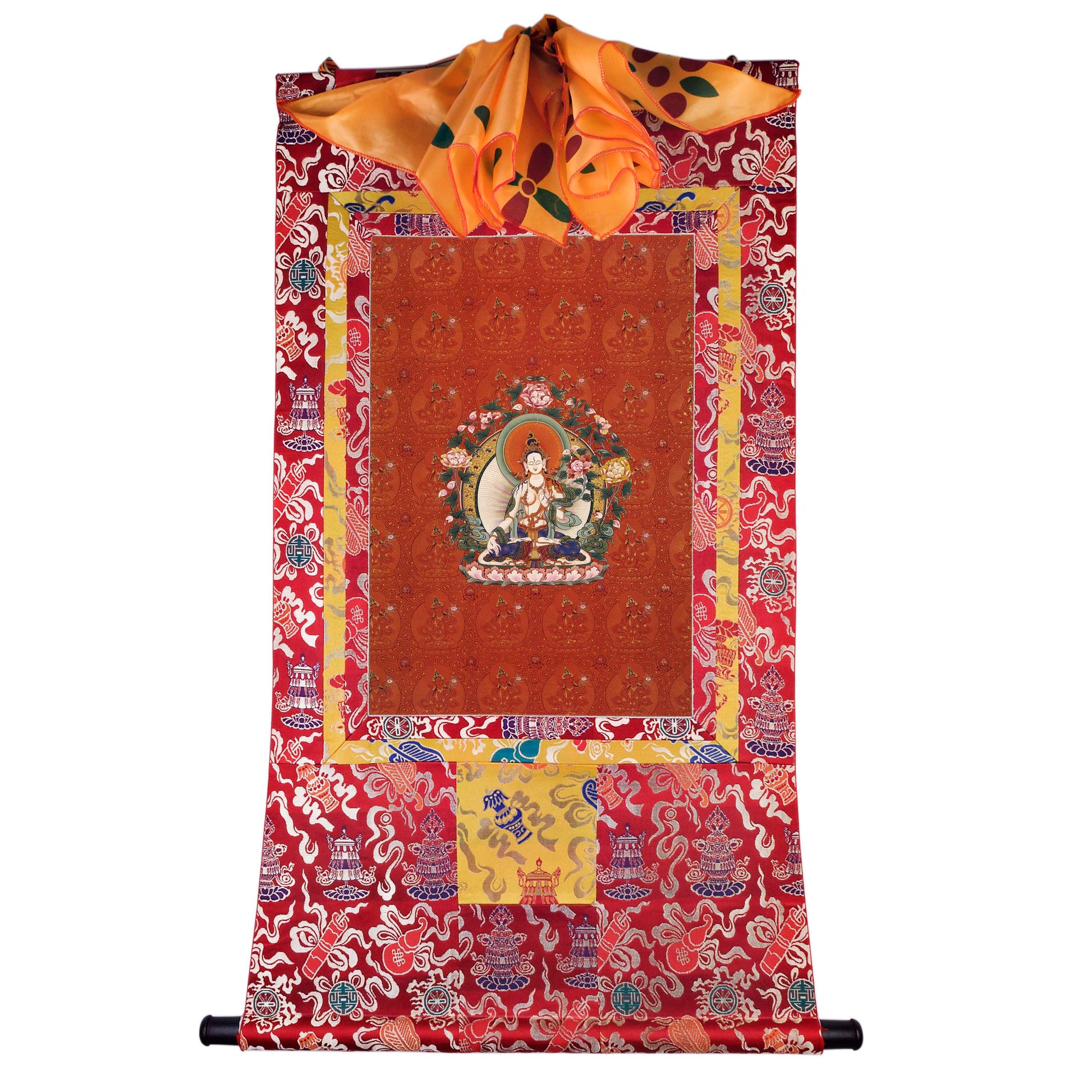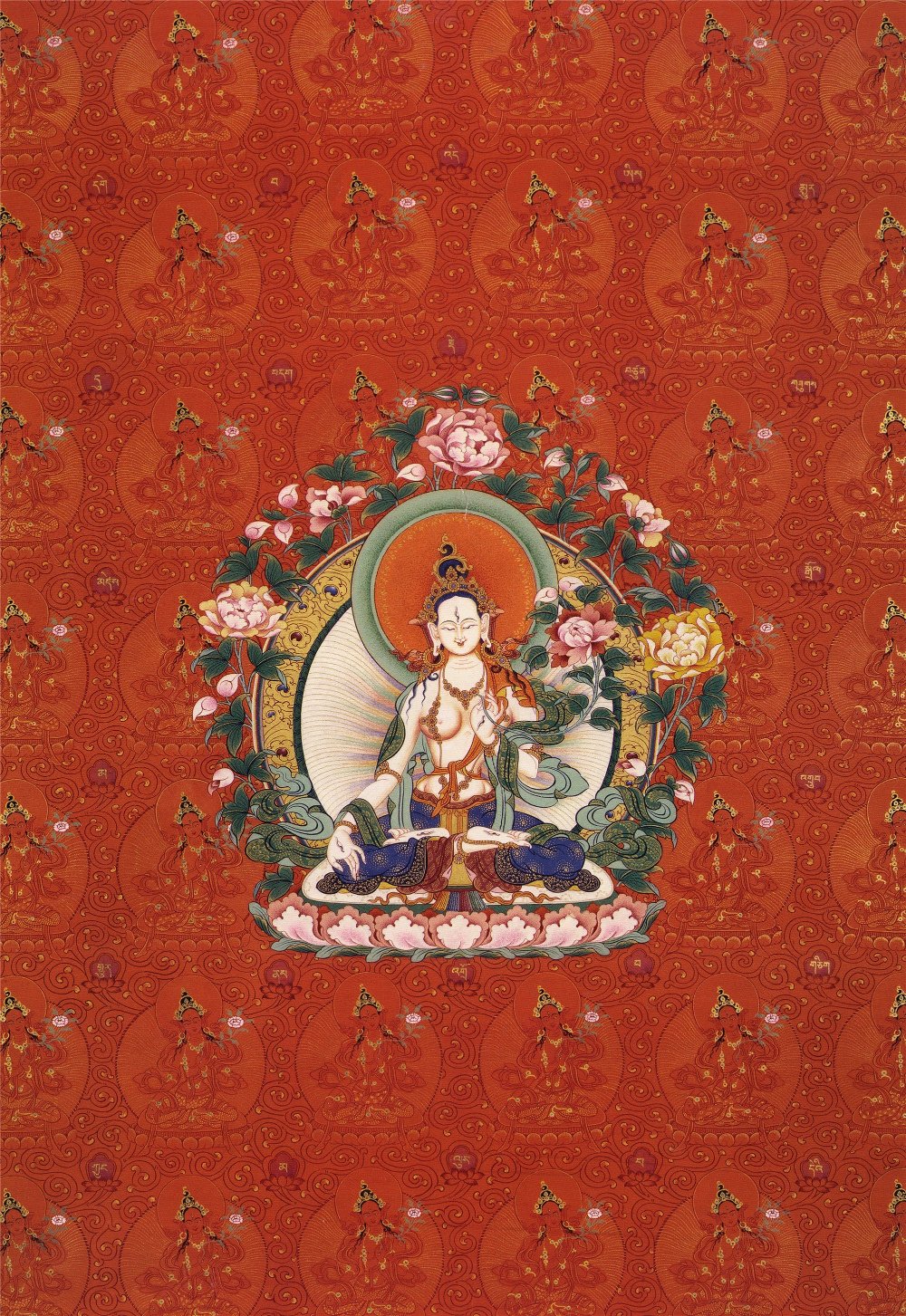White Tara Thangka 48" × 32"
White Tara Thangka 48" × 32"
Gandhanra Thangka Art
⏱Vintage: Before 2004
☞Handmade: 100%
⚒Materials: Mineral Pigment,Canvas,Cotton
☲Size: 48" × 32"
Couldn't load pickup availability
❤This thangka is white tara,red type,giclee print with mineral pigments,and hand framed.
Giclee print (French Giclée) is an exact replica of the original thangka, made with high-resolution digital print on tibetan canvas and produced in limited edition.
❤Details
Material: Tibetan cloth,canvas,silk
Type : mineral pigments giclee print,hand frame
Original Painting Size : 26.8 x 18.5 inches (68 x 47 cm)
❤Frame Size
Top width:66cm / 26"
Bottom width:82 cm / 32"
Height:120cm / 48"
❤Frame Color:
There are a total of 8 different colors for you to choose, please select the color number when you purshace.
Frames of different colors may vary in size, please understand.
❤ABOUT WHITE TARA
White Tārā, (Sitatārā) with two arms seated on a white lotus and with eyes on her hand and feet, as well as a third eye on her forehead (thus she is also known as "Seven eyed"). She is known for compassion, long life, healing and serenity.Also known as The Wish-fulfilling Wheel, or Cintachakra.
Tara (Skt. Tārā; Tib. སྒྲོལ་མ་, Drolma), 'She who Liberates' — a female deity associated with compassion and enlightened activity.
Tara (Sanskrit: तारा, tārā; Tib. སྒྲོལ་མ, Dölma), Ārya Tārā, or Shayama Tara, also known as Jetsun Dölma (Tibetan language: rje btsun sgrol ma) in Tibetan Buddhism, is an important figure in Buddhism. She appears as a female bodhisattva in Mahayana Buddhism, and as a female Buddha in Vajrayana Buddhism. She is known as the "mother of liberation", and represents the virtues of success in work and achievements. She is known as Tara Bosatsu (多羅菩薩) in Japan, and occasionally as Duōluó Púsà (多羅菩薩) in Chinese Buddhism.
Tārā is a meditation deity revered by practitioners of the Tibetan branch of Vajrayana Buddhism to develop certain inner qualities and to understand outer, inner and secret teachings such as karuṇā (compassion), mettā (loving-kindness), and shunyata (emptiness). Tārā may more properly be understood as different aspects of the same quality, as bodhisattvas are often considered personifications of Buddhist methods.
